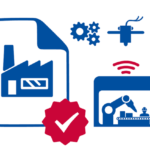According to the European Economic and Social Committee (EESC), the European manufacturing system can only make an effective and competitive transition to a cutting-edge digital and environmentally friendly economy when it is ready for significant investments in innovation. As the main job creators and providers, small and medium sized enterprises (SMEs) need particular support. The steps planned by the European Commission to facilitate better development of the manufacturing system should therefore be consistently based on real awareness of companies’ – especially SMEs’ – needs.
Europe occupies a leading positon in many manufacturing industries, in particular in pharmaceuticals, mechanical engineering and fashion. 20 %, or one fifth, of global investment in R&D is carried out in Europe, where a third of high-quality scientific publications are also produced. Even more importantly, manufacturing accounts for 17.3 % of Europe’s GDP and 80 % of exports.
In view of these impressive numbers, it is essential that Europe pools its forces to maintain and even strengthen this sector, said Antonello Pezzini, rapporteur of the EESC’s information report on incremental innovation in high manufacturing areas.
At a time when Europe wants to revitalise its manufacturing industry, this must be based on a solid base of SMEs, with digital platforms that know how to integrate different technologies: production data, supply chains and customers, monitoring and quality control systems with a high recycling rate, logistics and personalisation of products.
The main challenges facing EU companies, and in particular SMEs, are manifested mainly in the acceleration and increase of globalisation and increased competition, also in terms of the growth of new technologies (IA, macro-data, block chain, etc.) and a growing demand for product efficiency and safety, sustainable production and a commitment to the circular economy.
In order to overcome these remnants, the EESC calls on Europe and each of its Member States to put in place appropriate educational strategies, which are essential for the acquisition of new skills and new professional profiles. The EESC also stresses the need to acquire knowledge in artificial intelligence and macro data in order to cope with the new models used in this ‘industrial revolution’.
More information
Access the full news
More information: EU Single Market Section
Report on incremental innovation in high manufacturing areas.







Leave a Reply